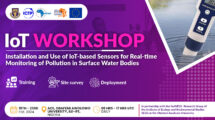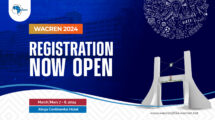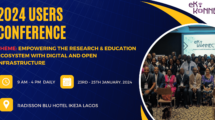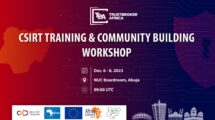Advancing global digital cooperation: What opportunities are provided by the current focus on digital cooperation resulting from the UN Secretary-General’s Roadmap for digital cooperation? What role should the IGF play (and how) in advancing global digital cooperation?
Global research and education networks support the advancement in global scientific knowledge related to climate change. The observation data, analysis and education materials which are an essential foundation for addressing matters under the UNFCCC are transported to and from researchers using the national and regional research and education networks (NRENs/RRENs). For some NRENs, compute and storage services are also provided to researchers in support of climate change research. The global research and education networks facilitate the cooperation between researchers across borders and continents. Our work contributes towards UNFCCC Articles 4.1(g and h) and Article 5.
To meet the UN sustainable development goals, tackle climate change and to prepare for and respond to disasters (man-made or otherwise) requires data. This data is increasingly being centralised into large data sets from a variety of different sources and at varying volumes. As the pace of technology advances, the number of data sources and the volumes of data acquired continues to grow exponentially. While challenges exist in acquiring, transporting, storing, processing, analysing and then finally re-transmitting a subset of that data for the benefit of citizens and national governments, there also exists a growing divergence in the capabilities of a number of nations and citizens from global south countries to partake in this field at scale (in comparison to countries from the global north).
The GEO communities (Group on Earth Observations) focus on the transmission and exchange of data which is utilised in the realm of geospatial research. Geospatial research is the investigation into the various aspects of earth science, but with a focus on particular locations, and this relies upon a number of communication layers and distribution systems. These layers and systems, controlled by a number of different actors, when inter-mixed form a transparent underlying service, otherwise known as the internet. In some respects, these layers are operated by a number Private (commercial), Non-Profit, Governmental and Nongovernmental Organisations (NGOs) to form a communications commons which the GEO community relies upon for its systems and services to work.
GÉANT, the convener and coordinator of this session, is a fundamental element of Europe’s e-infrastructure, delivering the pan-European GÉANT network for scientific excellence, research, education and innovation. GÉANT is also a participating member of GEO, representing the interests of all of its National Research and Education Network (NREN) members, promoting their work and trying to find opportunities to collaborate with other GEO members to help support science and researchers needs. Through its integrated catalogue of connectivity, collaboration and identity services, GÉANT provides users with highly reliable, unconstrained access to computing, analysis, storage, applications and other resources, to ensure that Europe remains at the forefront of research.
- Mark Urban, Chief Financial Officer, RedCLARA, Uruguay (GRULAC)
- Yousef Torman, Managing Director, ASREN, Jordan (Asia and the Pacific group)
- Charlene Gaba, Assistant Researcher, University of Abomey-Calavi, Benin (African Group)
More details on the event page.





